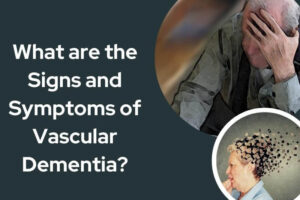What is Vascular Dementia?
Vascular dementia is a progressive cognitive impairment caused by reduced blood flow to the brain. This insufficient blood supply deprives brain cells of vital oxygen and nutrients, resulting in their damage and cognitive decline. It’s often a result of cerebrovascular disease, which includes conditions like strokes.
Types of Vascular Dementia
There are different types of vascular dementia, with the most common being multi-infarct dementia and small vessel disease. Each type has distinct characteristics and patterns of cognitive decline.
Symptoms of Vascular Dementia
Symptoms of vascular dementia can vary but frequently include memory loss, difficulty with problem-solving, confusion, and impaired judgment. These symptoms can have a significant impact on daily life and independence.
Who Gets Vascular Dementia?
While vascular dementia can affect people of any age, it primarily targets older adults. Individuals with high blood pressure, heart disease, diabetes, and those who have suffered strokes are at a higher risk.
Diagnosing Vascular Dementia
Diagnosing vascular dementia typically involves a thorough medical evaluation, including a review of the patient’s medical history, physical exams, and cognitive assessments. Neuroimaging, like MRI or CT scans, can help identify brain abnormalities.
Treatment and Support for Vascular Dementia
While vascular dementia is not curable, early intervention can help manage symptoms and slow the progression of the disease. Treatment may involve managing underlying conditions, medications, and cognitive therapies to improve memory and problem-solving skills. A strong support system, including caregivers and healthcare professionals, is essential for enhancing the patient’s quality of life.
In conclusion, understanding vascular dementia is crucial, especially for those at risk. Early recognition of symptoms and timely medical attention can significantly improve the quality of life for individuals living with this condition. If you or a loved one are showing signs of cognitive decline, seeking a medical evaluation is a vital first step.

